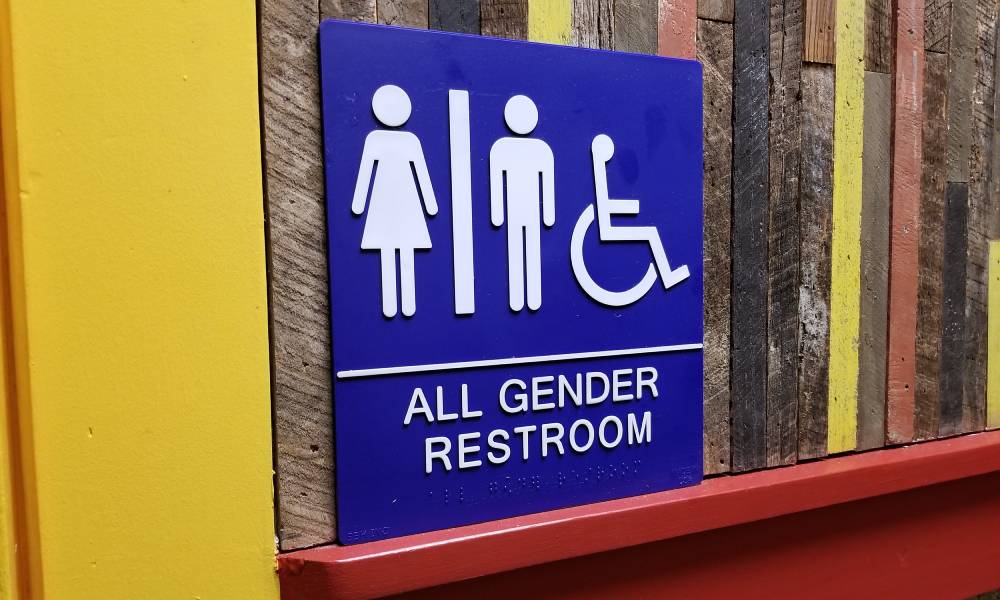Close-up of sign for an All Gender restroom against a wooden wall with yellow doorframe visible, San Ramon, California, 28 November 2018. (Photo by Smith Collection/Gado/Getty Images)
A federal judge has blocked a Tennessee law requiring businesses to post a notice if they allow trans people to use bathrooms that match their gender identity.
The law is the first-of-its-kind in the US and forces businesses to post a sign on multiperson bathrooms that the facility “maintains a policy of allowing the use of restrooms by either biological sex”. The bill was signed into law by Republican governor Bill Lee in March and went into effect last month.
But the ACLU filed the lawsuit weeks ago on behalf of two Tennessee businesses that wanted to fight back against the vile law. The lawsuit claimed the anti-trans law “violates the First Amendment” rights of business owners. The ACLU also asked the “court for a preliminary injunction to stop enforcement of the law while the lawsuit proceeds”.
US district Judge Aleta A Trauger granted the preliminary injunction Friday (9 July), effectively preventing Tennessee from enforcing the law as the lawsuit works through the courts.
In her ruling, Trauger noted the Supreme Court found that compelling individuals to “mouth support for views they find objectionable” violates a “cardinal constitutional command” unless “justified by the strongest of rationales”.
Trauger added the plaintiffs were “likely to succeed on their challenge” to the anti-trans law based on the argument that the “First Amendment typically does not permit such a mandate unless it is narrowly tailored to satisfy a compelling government purpose”.
Hedy Weinberg, executive director of the ACLU of Tennessee, declared in a statement that the law is “bad for businesses” in the state and “harmful to transgender people”.
“We are glad the court saw that this law is likely unconstitutional and hope that the state gives up the wasteful effort to defend discrimination and a violation of the First Amendment,” Weinberg added.
Kye Sayers, owner of Chattanooga’s Sanctuary performing arts and community centre and one of the owners in the lawsuit, said that she’s also glad the court saw reason and decided it was “unconstitutional” to “display a sign that hurts” trans and intersex people.
“These signs would have damaged our businesses and the environment we have tried to create for our community, customers and staff,” she added.
Under Tennessee law, businesses have 30 days to post the sign outside the “entrance of each public restroom in the building or facility”. If they do not, the business could be subject to six months in jail and fines of up to $500, according to the Associated Press.

Nashville’s top prosecutor Glenn Funk, who is also named in the ACLU lawsuit, vowed in May that his office would not enforce the hateful legislation. He said in a statement to News4 Nashville: “I believe every person is welcome and valued in Nashville.
“Enforcement of transphobic or homophobic laws is contrary to those values. My office will not promote hate.”
